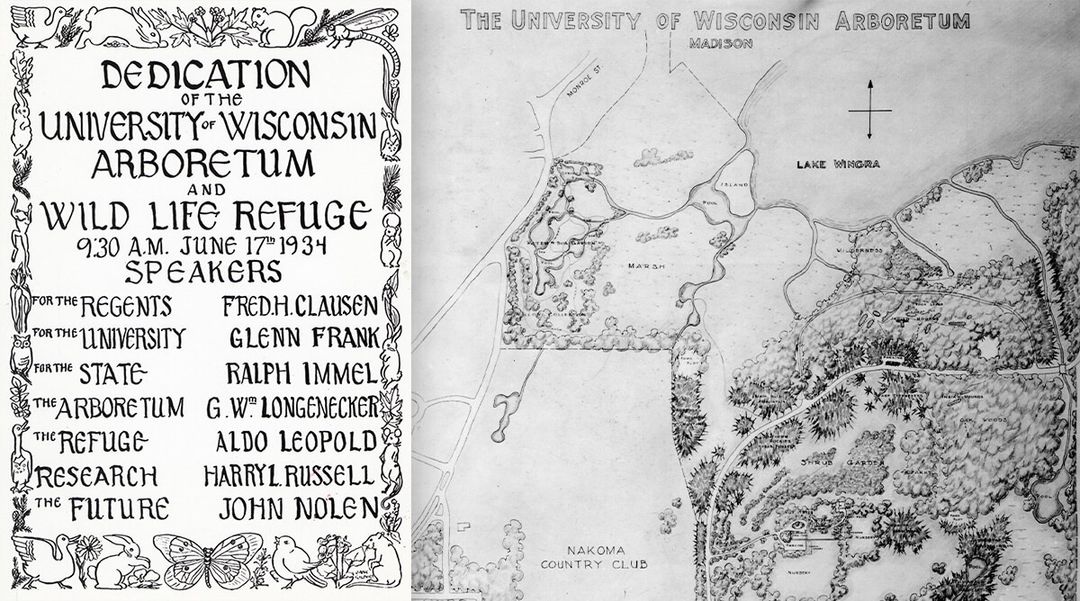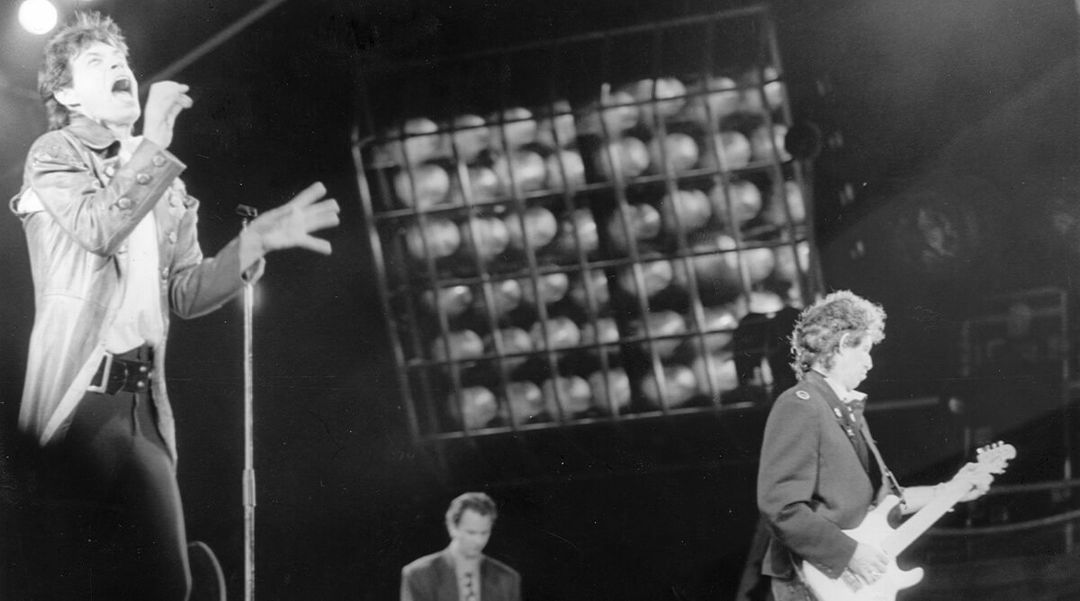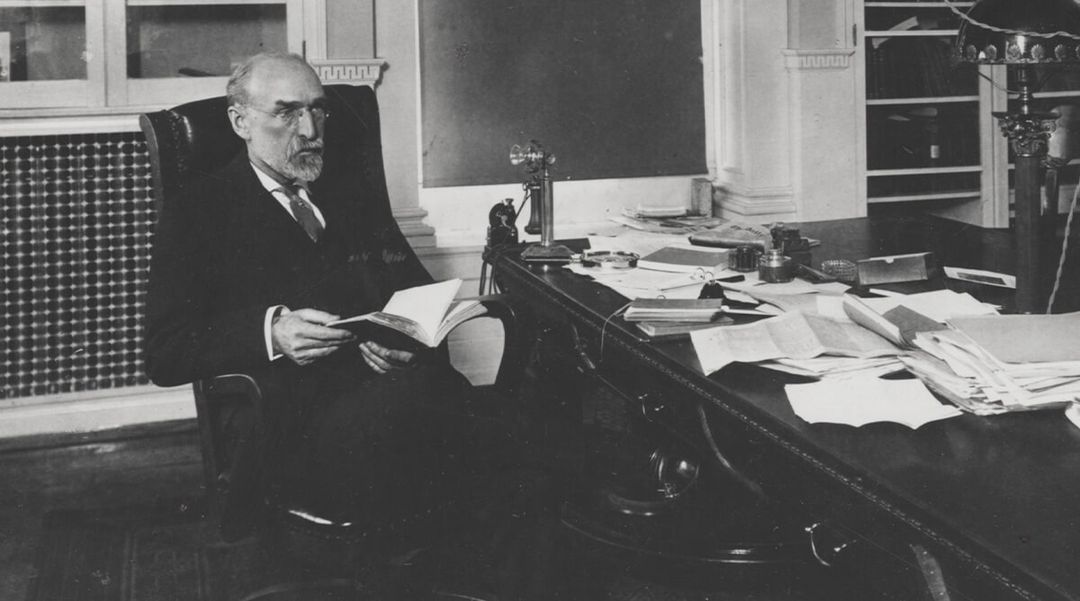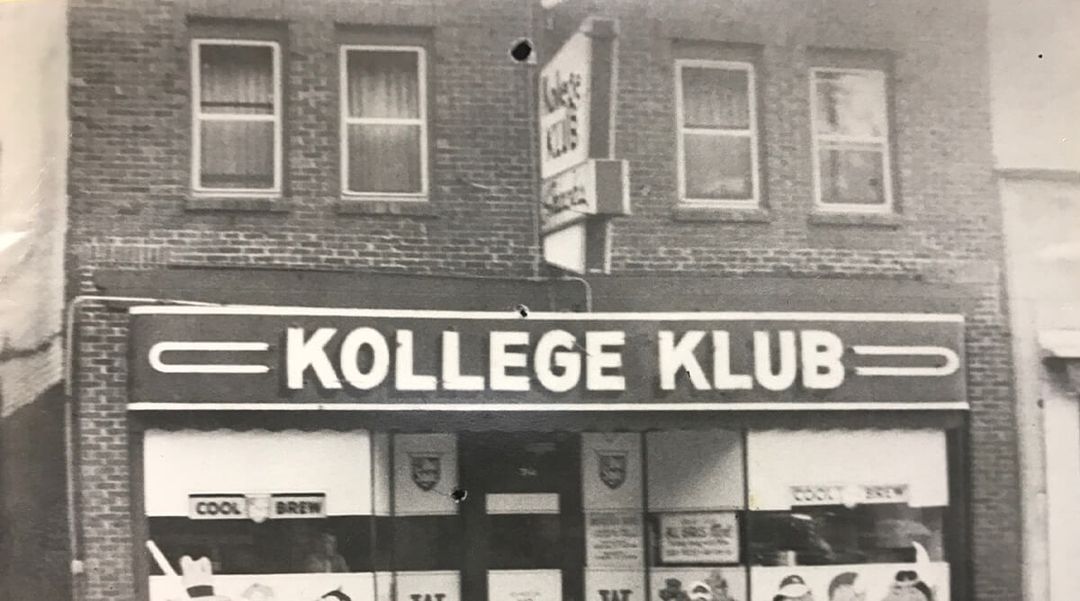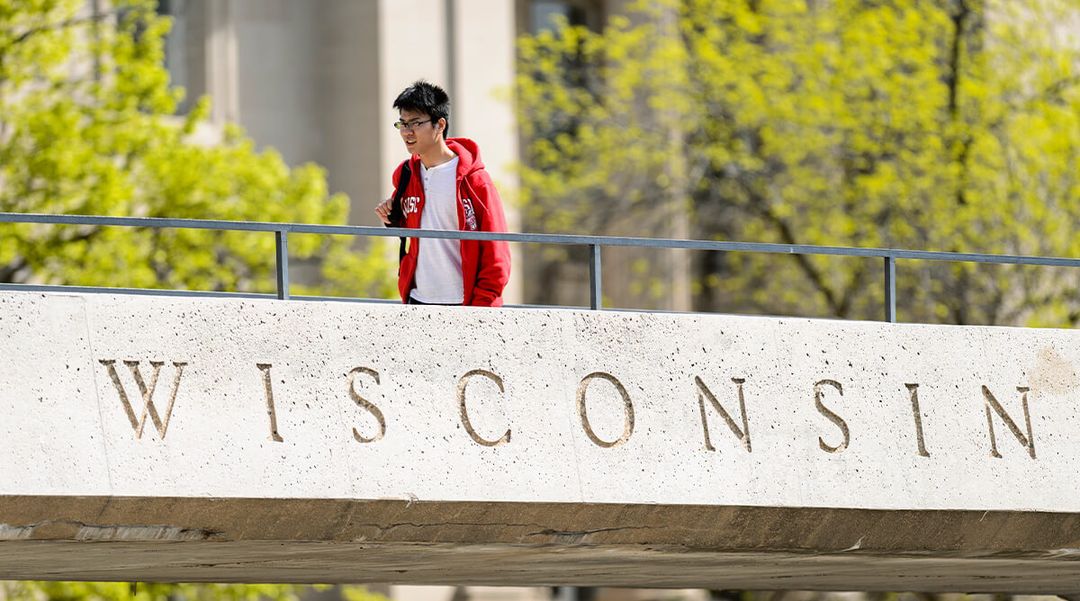Class of 1962: 50 Years Later
August 31, 1961: Crews complete construction of the Berlin Wall.
December 11, 1961: The first American helicopters arrive in Saigon, signaling the beginning of the Vietnam War.
March 26, 1962: More than 300 University of Wisconsin students hold a demonstration against U.S. nuclear testing. They are heckled by a similarly sized crowd of onlookers.
March 30, 1962: Dr. Martin Luther King, Jr. speaks at the Wisconsin Union Theater, his first of two visits to the UW campus.
Each of these moments no doubt made indelible marks on the more than 2,550 young men and women who accepted their diplomas from University of Wisconsin President Conrad Elvehjem ’23, MS’24, PhD’27 in the shelter of the Field House, as rain lightly fell outside Camp Randall on June 4, 1962.
Fifty years later, one of the most prominent alumnae from that graduating class points to dynamic world politics, and the civil rights and women’s rights movements, as the momentum for her classmates who went on to become leaders and to change lives.
“We were ready for change,” explains Wisconsin Supreme Court Chief Justice Shirley Schlanger Abrahamson DJS’62. “We were ready for equal opportunity for all people, and as law students, we were especially committed to the constitution of equal protection and due process for all.”
Today, they’re an average of just under 72 years old. And more than 150 of these Badger alumni who graduated in 1962 returned to UW-Madison in mid-September for their 50-year class reunion.
Along with an official introduction into the Half Century Club and a special Class of ’62 Badger tailgate at the new Union South, these grads also engaged with UW-Madison faculty on issues that are personally and professionally important to many of this generation during the Day of Learning.
Dave Zweifel ’62, editor emeritus of the Capital Times and a member of the Class of 1962 Reunion Committee, says he wanted the Day of Learning to reflect the interests — and concerns — of his fellow graduates. He called on colleagues and friends in the UW-Madison School of Journalism and Mass Communication and the Department of Political Science to help moderate a session on the future of mass media and repairing our fragmented politics.
The School of Journalism and Mass Communication alumnus says that the calling he felt five decades ago to make a contribution to society is something he shared with many of his peers.
“Our generation was really prepared, enthusiastic and enabled to leave a mark on Madison and the world,” Zweifel says. “We had big dreams. We were optimistic. JFK was president, and there was a lot of enthusiasm for what we could do to help our fellow citizens.”
These classmates channeled their inspiration into positive impacts around the world and here in Wisconsin.
“For our generation, newspapers were an essential part of communication,” Zweifel explains. “Now that we’re in our 70s, and some newspapers are going away, there is concern about how it will affect our democracy.”
Zweifel knows a lot about the history of newspapers. He started delivering them in seventh grade, and in high school produced weekly, hand-written editions. One day after graduating from the UW, he started work at the Capital Times as a farm reporter. With the exception of two years serving active duty for the Army National Guard, he’s been there ever since, rising to editor-in-chief in 1983.
Shirley Schlanger Abrahamson DJS’62 is the first woman elected to Wisconsin’s Supreme Court and was named chief justice in 1996. David Ward MS’62, PhD’63 first led UW-Madison as chancellor from 1993 to 2001 before returning as interim chancellor in 2011. He is internationally known for his leadership on innovations in higher education, highlighted through his presidency of the American Council on Education in Washington, D.C. Dennis Maki ’62, MS’64, MD’67, emeritus faculty of the UW School of Medicine and Public Health, is one of the most renowned infectious-diseases experts in the world. And the list goes on.
“The people of the state of Wisconsin have historically recognized the value of education, as did my parents, who were immigrants,” Abrahamson says. “Education is important for all of us to participate in a democratic government and in the economic lives of our communities.”
And that’s why the challenges facing institutions such as UW-Madison were another focus of the Class of 1962’s Day of Learning. In a session led by Interim Chancellor Ward and another grad, Willamette University Professor James Nafziger ’62, MA’69, alumni reflected on last year’s dialogue surrounding the New Badger Partnership, a university effort that sought more operational flexibility from the state, and discussed the roles that women play in today’s world of higher education.
The Women of ’62, a collective of female graduates, also gathered to reflect on the remarkable changes that this generation of women has experienced.
“Our culture moved from the Mad Men ’50s, the hippie ’60s, the women’s lib ’70s, to the increasingly women-empowered ’80s through 2012,” said Su Schaffer ’62 of Menlo Park, California, a past member of the Wisconsin Alumni Association’s national board, who co-hosted the gathering with Claudia Card ’62, a UW-Madison professor of philosophy. “We were at the beginning of those momentous changes, and each of us has stories fueled by our reluctance, indifference, acceptance, or activism over those years.”
And the Class of 1962 continues to make its mark on campus. A reunion gift of more than $140,000 from this class will support Alumni Park, WAA’s gift to campus — a new greenspace on the shore of Lake Mendota. “The UW System is a tribute to the hard work of all the people of this state,” Abrahamson says. “And it’s my hope it will continue to be a world-class university system.”
Alumni Reflections
With 50 years gone by from commencement to class reunion, four 1962 UW-Madison graduates take a moment to reflect on how their education impacted their lives and why they’re proud to be Badgers.
Name: Mike Spector ’62
Current Hometown: Shorewood, Wisconsin
1962–2012: The highlights of my life since UW graduation include my wife, three sons and two grandchildren; extensive worldwide travel; White House Fellows and U.S. Department of Justice employment during much of the Watergate period; and a variety of K4–16 education-related experiences as a school law attorney, elected school-board member and law school adjunct professor, culminating in the presidency of the UW System Board of Regents during 2011–12.
How has being a UW-Madison alumnus made a difference in your life? I believe that my long-time, strong commitment to K4–16 education in general and the liberal arts in particular results in significant part from numerous Madison undergraduate experiences: the Integrated Liberal Studies program, writing an honors thesis in history, involvement in the All-University Symposium and other extracurricular activities, great professors and engaging with students from very diverse backgrounds.
Favorite memory of UW-Madison? The Saturday-afternoon, March 3, 1962, over-the-top, Field House hammering (86-67) of the number-one-ranked and previously unbeaten Ohio State Buckeyes, led by John Havlicek, Jerry Lucas and sixth man Bob Knight. The upset was especially memorable because it was the swan song of my five-dollar-a-game, two-year stint as the statistician/spotter for Mike Walden, WTMJ’s voice of UW football and basketball.
Name: Su Schaffer ’62
Current Hometown: Menlo Park, California
1962–2012: Life has been varied and full. My career included teaching; 18 years at United Airlines, where I was the first woman VP; serving as an executive at Stanford University; and my own consulting practice. While I have many interests, two have been most enduring: my love of hiking, with stints in Yosemite, the Grand Tetons, Bhutan, the Inca Trail and countless trips to the Swiss Alps. The other has been my vacation home in Eagle River ... I bought the property two years out of the UW and have spent as much time there as possible every year since.
How has being a UW-Madison alumna made a difference in your life? The UW was a very affirming place for me. I was in an all-female field, women’s PE, which gave me leadership opportunities that have shaped my life ever since.
Favorite memory of UW-Madison? There are several: spring blossoms on Observatory Hill, the ’59 Rose Bowl, Dean Martha Peterson’s help in solving a senior-year housing problem and steak sandwiches at the Brat House.
Name: Dave Zweifel ’62
Current Hometown: Madison, Wisconsin
How has being a UW-Madison alumnus made a difference in your life? I had great classes, and faculty who were really engaged in the community and were able to teach us the fundamentals of good journalism. I was fully prepared to hit the ground running by the time I graduated.
Favorite memory of UW-Madison? My fondest memories are going to class at Bascom Hall, and old North and South Halls. I really enjoyed my journalism and political sciences classes. Those lectures, in addition to having a few beers at the KK, are very pleasant memories.
The University of Wisconsin is one of the greatest places I’ve had the pleasure of being involved with, and a big piece of my heart is still with it.
Name: Shirley Schlanger Abrahamson DJS’62
Current Hometown: Madison, Wisconsin
50 years in 50 words or fewer: After graduating in 1962, Abrahamson worked in private practice and was a professor at the UW Law School. She was appointed to the Wisconsin Supreme Court in 1976, and has served as chief justice since 1996.
How has being a UW-Madison alumna made a difference? We loved Madison at first sight. Being a UW alumna has made all the difference in my life and career. It opened up the opportunity for my husband and me to get jobs here, and raise our family here.
Favorite memory of UW-Madison? I have three: the old law school on Bascom Hill; the Agriculture Building and the Wisconsin Historical Society, where I spent many hours on my thesis on quality control of Wisconsin’s dairy industry; and finally, the Memorial Union, where we sat outside and watched the sailboats go by on Lake Mendota.

